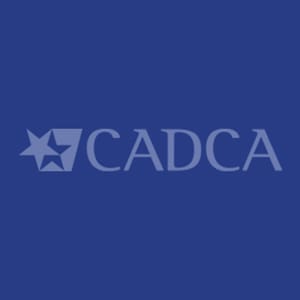April 4º – 10º é National Public Health Week (NPHW), led by the American Public Health Association (APHA) to recognize the contribution of public health and highlight issues that are important to improving our nation. As part of this national effort to increase awareness around different public health initiatives, NPHW strives to make America the healthiest nation in one generation – by 2030.
“In the United States, the combination of where you live, your income, education, access to healthcare, and race can mean as much as a 15-year difference in how long you live.” This striking quote from APHA is one reason why the Geographic Health Equity Alliance (GHEA), a CADCA project funded through the Centers for Disease Control and Prevention (CDC), is working to bridge the gap of tobacco and cancer related disparities that disproportionally affect Americans based on where they live.
Research from the CDC shows that tobacco and cancer disproportionately affect people based on where they live. Whether it is higher rates of tobacco use ou higher mortality rates for various cancers, these communities experience adverse health outcomes their counterparts in other regions of the country encounter with less frequency and severity, if at all. While clearly framing issues around health disparities is very important, finding and implementing local and realistic solutions to address them are equally important in ensuring health equity across our nation.
In concentrating on these issues and successfully making the United States the healthiest nation by 2030, APHA encourages developing partnerships across public and private sectors to build healthier communities. Within GHEA, we have taken this approach by working with both traditional (state-based public health programs) and non-traditional partners (rural independent pharmacists) to lessen the geographic disparities many communities continue to face.
Earlier this month, I attended a community health workers’ (CHWs) training around smoking cessation, cancer prevention and survivorship that GHEA co-developed alongside the National Rural Health Association and Texas A&M University’s National Community Health Workers Training Center. Through this partnership which geographically focused on two counties in northwest Georgia, we led a conversation with CHWs about tried and true evidence based practices and how they felt such information best fit within their efforts to navigating patients through the local healthcare environment.
Reaching rural populations often poses unique challenges, often in terms of access to healthcare. A major concern in rural areas involves establishing a routine, sustainable point of contact within the healthcare system; for example, a contact supporting smokers who are ready to quit their tobacco use. To address a barrier as such in a unique way, GHEA is partnering with Creative Pharmacist to train and support independent pharmacists in rural Tennessee in providing evidence-based, face-to-face and quitline rendered tobacco cessation services. In low-resourced communities with limited access to medical doctors, nurse practitioners or other traditionally identified healthcare providers, there often is at least one pharmacy anchored within those regions. Collaborating with independent pharmacists to provide sustained tobacco cessation services allows residents in rural communities to seek public health services from a local healthcare provider that they know and trust.
GHEA works to address the needs of our priority communities by collaborating with local public health professionals and other community servants which includes meeting them where they are. In the spirit of National Public Health Week, it is these types of partnerships through which we strive to support decision making and relationship building with people’s localized public health needs in mind.



